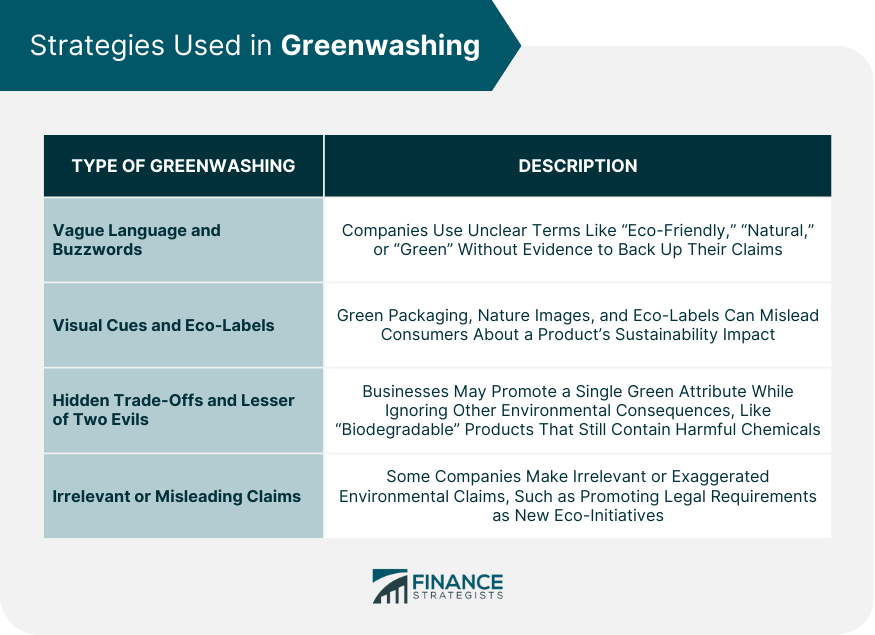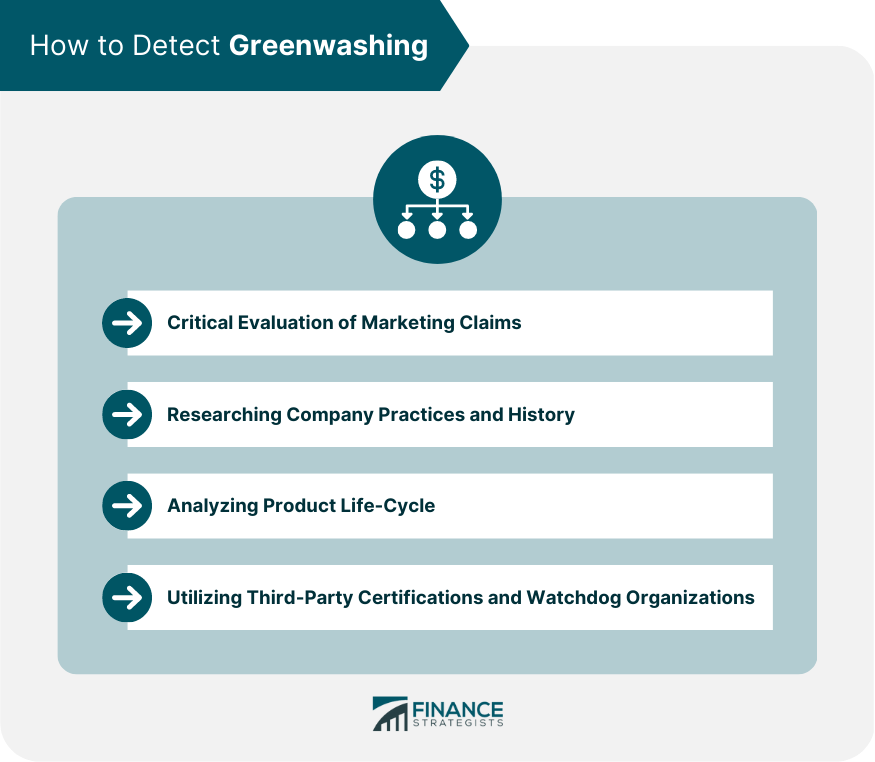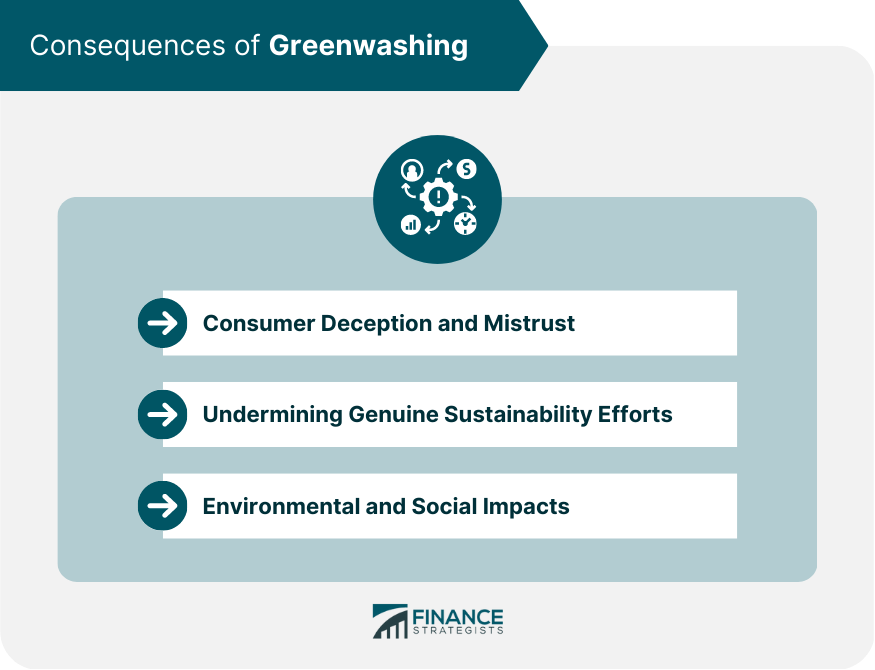Greenwashing is a deceptive marketing practice in which companies portray their products, services, or overall corporate image as environmentally friendly when, in reality, they are not. This tactic is used to attract eco-conscious consumers and capitalize on the growing demand for sustainable products. Companies engage in greenwashing to enhance their reputation, appeal to a broader consumer base, and increase sales. It allows businesses to gain a competitive edge without genuinely addressing their environmental impact or investing in sustainable practices. The term "greenwashing" was coined in the 1980s by environmental activist Jay Westerveld, who observed the hypocrisy of the hotel industry urging guests to reuse towels while continuing to engage in environmentally harmful practices. Greenwashing is prevalent across various industries, including fashion, energy, food and beverages, automotive, and cosmetics. Any sector that can benefit from an eco-friendly image is susceptible to greenwashing. Greenwashing is a global phenomenon, with companies from different countries and industries participating in deceptive marketing tactics. The scale of greenwashing further complicates efforts to combat climate change and environmental degradation, as it diverts attention from genuinely sustainable solutions. Companies often use ambiguous terms like "eco-friendly," "natural," or "green" without providing clear definitions or evidence to substantiate their claims. These buzzwords create an illusion of environmental responsibility without any concrete action. Visual elements like green packaging, images of nature, and eco-labels are used to create an impression of sustainability. However, these cues may be misleading and may not accurately represent the product's environmental impact. Companies may promote a single environmentally friendly attribute while ignoring other significant environmental consequences. For example, a product may be advertised as "biodegradable" but still contain harmful chemicals or require excessive energy to produce. Some businesses make irrelevant or misleading environmental claims, such as promoting a long-standing legal requirement as a new environmental initiative or exaggerating the benefits of a minor change in their practices. To detect greenwashing, consumers should critically evaluate marketing claims and question their validity. This process includes examining the clarity and specificity of the information provided, as well as its relevance to the product's environmental impact. Investigating a company's overall environmental record and practices can help consumers identify greenwashing. Examining corporate commitments to sustainability, environmental reporting, and third-party assessments can provide insights into a company's genuine dedication to sustainability. Assessing a product's life-cycle, including raw material extraction, production, distribution, use, and disposal, can help determine its true environmental impact and reveal potential greenwashing. Third-party certifications, such as the Forest Stewardship Council (FSC) or the Global Organic Textile Standard (GOTS), can help verify the legitimacy of environmental claims. Additionally, watchdog organizations like Greenpeace and the Environmental Working Group (EWG) can provide valuable resources for evaluating the environmental performance of companies and products. Greenwashing deceives consumers into believing they are making environmentally responsible choices. This deception can lead to consumer mistrust and skepticism toward all sustainability claims, even those made by genuinely eco-friendly companies. By creating a false impression of environmental responsibility, greenwashing can undermine the efforts of companies genuinely committed to sustainability. This deception diverts consumer attention and resources away from businesses that invest in authentic sustainable practices. Greenwashing contributes to ongoing environmental degradation by enabling companies to continue with harmful practices while maintaining a positive public image. Moreover, it can perpetuate social inequities and exploitation by obscuring the connection between environmental practices and their impact on vulnerable communities. Various countries have enacted regulations to address greenwashing, such as the United States Federal Trade Commission's (FTC) "Green Guides" and the European Union's Unfair Commercial Practices Directive. These regulations provide guidelines for environmental marketing claims and allow for enforcement actions against deceptive practices. International organizations, such as the United Nations Environment Programme (UNEP) and the Organization for Economic Co-operation and Development (OECD), promote cooperation and harmonization of environmental marketing regulations to combat greenwashing on a global scale. Despite existing regulations, greenwashing remains a challenge due to difficulties in defining and quantifying sustainability, variations in national and regional regulations, and limitations in enforcement resources. Encouraging companies to be transparent about their environmental performance and commit to genuine sustainability goals can help combat greenwashing. This includes adopting comprehensive sustainability reporting and engaging in robust stakeholder dialogue. Increasing consumer awareness about greenwashing and promoting media literacy can empower individuals to make informed choices and hold companies accountable for their environmental claims. Consumers can combat greenwashing by supporting businesses that demonstrate a genuine commitment to sustainability, invest in eco-friendly practices, and transparently report their environmental performance. Advocating for stronger regulations, stricter enforcement, and international cooperation can help address greenwashing and establish a level playing field for businesses genuinely dedicated to sustainability. Addressing greenwashing is crucial for promoting genuine sustainability efforts, protecting consumers from deception, and mitigating the adverse environmental and social impacts of misleading marketing practices. Individuals, businesses, and governments each play a vital role in combating greenwashing. Through collective action, we can foster a culture of transparency, accountability, and genuine commitment to sustainability. As the world grapples with the growing challenges of climate change and environmental degradation, the importance of authentic sustainability efforts cannot be overstated. Eliminating greenwashing and promoting genuine corporate responsibility are essential steps toward achieving a more sustainable and equitable future for all.What Is Greenwashing?
Strategies Used in Greenwashing
Vague Language and Buzzwords
Visual Cues and Eco-Labels
Hidden Trade-Offs and Lesser of Two Evils
Irrelevant or Misleading Claims

Detecting Greenwashing
Critical Evaluation of Marketing Claims
Researching Company Practices and History
Analyzing Product Life-Cycle
Utilizing Third-Party Certifications and Watchdog Organizations

Consequences of Greenwashing
Consumer Deception and Mistrust
Undermining Genuine Sustainability Efforts
Environmental and Social Impacts

Legal and Regulatory Framework
Current Regulations and Enforcement
International Efforts and Cooperation
Challenges and Limitations
Combating Greenwashing
Promoting Transparency and Corporate Responsibility
Educating Consumers and Raising Awareness
Supporting Ethical and Sustainable Businesses
Encouraging Stronger Regulations and Enforcement
Conclusion
Greenwashing FAQs
Greenwashing is a deceptive marketing practice where a company promotes itself as environmentally responsible without actually taking significant steps to reduce its environmental impact.
Look for clear and specific environmental claims that are backed up with evidence. Be wary of vague or exaggerated claims and visual cues like green packaging or nature imagery, which may not accurately represent a product's sustainability impact.
Greenwashing misleads consumers and can undermine legitimate efforts to protect the environment. It also allows companies to profit from an illusion of sustainability without actually taking meaningful steps to reduce their environmental impact.
Yes, there are laws in many countries that prohibit false or misleading environmental claims in advertising and marketing. However, enforcement of these laws can be challenging, and some companies may still engage in greenwashing.
Research a company's environmental track record and look for third-party certifications or eco-labels. Support companies that are transparent about their sustainability practices and make verifiable environmental claims.
True Tamplin is a published author, public speaker, CEO of UpDigital, and founder of Finance Strategists.
True is a Certified Educator in Personal Finance (CEPF®), author of The Handy Financial Ratios Guide, a member of the Society for Advancing Business Editing and Writing, contributes to his financial education site, Finance Strategists, and has spoken to various financial communities such as the CFA Institute, as well as university students like his Alma mater, Biola University, where he received a bachelor of science in business and data analytics.
To learn more about True, visit his personal website or view his author profiles on Amazon, Nasdaq and Forbes.















